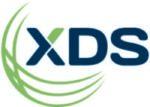Allentown, PA – It used to be easier for businesses to cheat on their taxes. They just didn’t report all their cash sales.
Businesses may not make as many cash sales these days because of the rise of credit cards, but that hasn’t stopped the cheating. It just requires some planning and technology known as “zappers” that can remove any purchase from the books.
They’re used worldwide, including in the Allentown area, and could be costing the Pennsylvania government an estimated $100 million or $200 million annually in taxes. Some good detective work by the state has cut into that loss.
We all must pay our fair share in taxes. No one likes doing it — especially considering how much of our money gets wasted — but it’s the right thing to do and I’m glad the state is making it happen.
The state Revenue Department employees who discovered this fraud, and recouped about $6.3 million in taxes, received a well-deserved honor recently. They’re among the many government workers who perform vital roles behind the scenes
Read the full article here.
